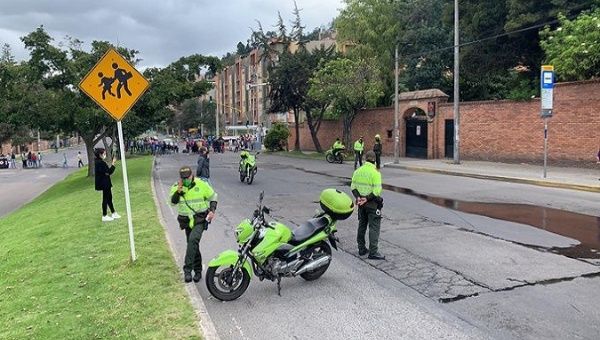RIO DE JANEIRO, BRAZIL – With the collapse of the casual sector, in which almost 50 percent of the population works in the country’s major cities, thousands have lost their only source of income.
“We are not dying of the virus, but of hunger,” said a woman from Ciudad Bolívar. Although the government and the mayor of Bogotá, Claudia López, have announced help, it has been slow to get off the ground for technical and bureaucratic reasons.
Irregularities found in the database of the Solidarity Income Program (Ingreso Solidario) first needed to be examined.
A further issue is that many of the families and individuals in need during the quarantine are not registered in the government support systems. López has now publicly apologized for the delays.
Protests are increasing, particularly in southern Bogotá, one of the capital’s most impoverished areas.
As a result, despite the quarantine, people have come together in “cacerolazos”, a loud form of pot-banging protest, and in street blockades to voice their discontent with the management of the crisis.

In the district of Ciudad Bolívar in the capital, looting of supermarkets was reported, which was brought to an end by the police.
“Hunger will not wait. It is good that the quarantine is extended, because it is for the good and health of everyone, but the consequences are serious in terms of lack of food,” said a resident of Chapinero.
Given the circumstances, a number of social organizations have now taken the initiative to collect donations to help those in need.
They distribute food, hygiene products and pet food in different districts of the capital.
Among the volunteers are also members of the so-called Blue Shields, a group of the “First Line” (Escudos Azules, Primera Línea), who have organized themselves during the recent mass demonstrations, and the grassroots movement Congress of Peoples (Congreso de los Pueblos).
They announced that they would continue these solidarity collections during the pandemic. One of the volunteers said: “Our goal is to hold this type of weekly rounds in the most affected areas of the capital. But to do so, we need the help and solidarity of Colombians who understand that this crisis cannot be overcome through confinement, but rather through the creation and extension of solidarity networks and mutual support among the population. Real, effective and dignified support”.
In Colombia, there are currently 7,006 confirmed cases of Covid-19, 314 deaths and 1,551 cured patients according to official figures (on May 2nd).

